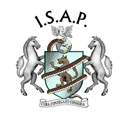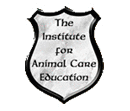
This course is a combination of relevant modules from several courses for those who would benefit from a specific approach to training and behaviour rather than one or the other.
Course Modules
1. Ways of Explaining Canine Behaviour
- The affects of biology on behaviour
- Natures approach to behaviour
- Nurtures approach to behaviour
- How food affects behaviour
- Associative learning
- Do dogs think?
- Canine intelligence
- Various ways dogs communicate
- Canine instincts
- What is a behaviourist?
2. Understanding Canine Behaviour
- Introduction to developmental psychology
- The newborn puppy
- Associative learning in the newborn puppy
- Reflex actions
- Initial development in the newborn puppy
- The puppy's vision
- The puppy's hearing
- Lapping behaviour
- Early experiences with semi-solid foods
- The Nature/Nurture debate
- The behaviour of the mother
- Natural selection
- Elimination behaviour in the newborn puppy
- The behaviour of the father
- The importance of play in the newborn puppy
- Why puppies play
- The play bow
- The role of hormones
- Social development
- Canine senses
- Artificial selection
- What is an adult dog?
- Sexual maturity
- Physical maturity
- Psychological maturity
- The dog as a predator
- Instincts
- Types of aggressive behaviour
- The dog as a social animal
- The structure of a pack
- Personality expression
- Vocalisation
- Posture
- Scent marking
- Burying food
- The elderly dog
3. Canine Learning
- Charles Darwin's biological adaptations
- The nature verses nurture debate of learning
- Environmental influences on behaviour
- Canine learning
- The parental influences on learning
- Critical and sensitive periods of the puppy's development
- Classical conditioning
- Chaining
- Instrumental or operant conditioning
- Reward and punishment in learning
- Reinforcers and punishment in learning
- Primary and secondary reinforcers
- Reinforcement schedules
- Shaping behaviour
- Sensitisation
- Cultural transmission
- The importance of play
- Insight learning
- Habituation
4. Dog Training
- Why train dogs?
- The senses and training
- Schedules of reinforcement
- Primary and secondary reinforcers revisited
- Choice of primary reinforce
- Benefits of using positive reinforcement
- Putting the theory into practice
- Basic training of house training, the recall, the sit, sit/stand and progressing to heel with problems and solutions
- The advantages and disadvantages of using Clicker Training
- Summary of training principles
5. Touch
- Touch or tactile communication
- Meet, greet and licking as a form of communication
- Lip smacking
- Teat nudge
- Kneading
- Muzzle-nudge and nose to throat nudge
- Muzzle grasp
- Hip nudge
6. Handling Aggression
- Dealing with aggression
- Learning theory
- Operant conditioning
- Positive and negative reinforcement
- Positive and negative punishment
- One trial learning
- Generalisation with behaviour to different surroundings
- Initial measures
- When should training begin?
- Desensitisation and Counter Conditioning Techniques
- What is flooding
- Aversive conditioning
- Learned helplessness
- Over learning
- Holistic approaches to behaviour modification
- Legal Issues and the Dangerous Dogs Act


Study Level 2-3The study Level relates to the how demanding the course is. 1 is beginner and 5 is HND / Foundation Degree level.
All Compass Education Ltd courses are written by industryexperts and provided exclusively in the UK by Compass, they are not availableanywhere else. Courses are unique to Compass and accredited by Ofqual regulatedAwarding Bodies and/or Industry Professional Bodies as indicated in each coursedescription. In common with the overwhelming majority of private educationalprovision in this sector they are not a part of the RQF or SCQF and they do notappear on Ofqual's register of qualifications.
6 Module CourseThis course is delivered in 6 study modules which need to be passed to gain the qualification.
Reviews
No reviews were found.


